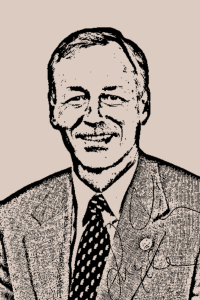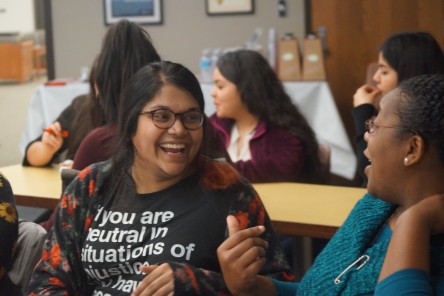Latino Americans play major roles in Arkansas’s social, economic, and political success. However, their experiences, history, and struggles still receive little mainstream attention. Over the last year, the UALR Center for Arkansas History and Culture (CAHC) has fought against this inequality through strategic education, entertainment, and community engagement.
Funded by a $3,000 grant from the National Endowment for the Humanities (NEH) and the American Library Association (NEH), CAHC joined 203 other recipients around the country to bring NEH’s Latino Americans: 500 Years of History initiative to life. Each recipient customized the program to their audience and mission, hosting speakers, holding film viewings, and conducting events for the public.
CAHC Director Dr. Deborah Baldwin and Dr. Erin Finzer, Chair of the Department of International and Second Languages, led the programming. The UALR Office of Campus Life, the Clinton School of Public Service, and the Arkansas Arts Center partnered with them throughout the year. Both Finzer and Baldwin cite the need for representation as the driving force behind the project. “We were inspired to pursue this program because we have an interest in increasing the diversity of the archival collections held at the university and are working to include more underrepresented groups who have a role in the history of the state,” Baldwin explains. “The Latino population is growing in Arkansas and we want to include those experiences in our collections.”
CAHC highlighted these stories through screenings of the PBS Latino Americans: 500 Years of History documentary, as well as lectures and discussions. The events, which were free and open to the public, included well-attended talks by Latino professors, researchers, and artists from all over the country. At one such event, Esmeralda Baltazar of the Highlander Research and Education Center and Chicago teaching artist Aquil Charlton met with a crowd over 100 to discuss the importance of strong neighborhood schools for the preservation of diverse communities, as well as the concept of African American and Latino coalition building. The program organizers were pleased to see individuals from all over the state attend the various events.
Bringing attention to the stories, issues, and accomplishments of Latino Americans did more than draw a crowd, though—according to Finzer, it impacted students’ lives. For example, after one talk, Finzer says “a student made an appointment with me to declare Spanish as her major because she wanted to pursue a career in migrant human rights.” Other students who attended the lectures said they left feeling empowered, validated, and less alone.
“Arkansas has one of the fastest growing Latino populations in the United States,” Finzer states. “Telling the stories of Latino Americans in Arkansas allows all Arkansans to embrace the roots that Latinos have in our state and to continue to cultivate the growth of this community.”
Latino Americans: 500 Years of History, a public programming initiative produced by the National Endowment for the Humanities (NEH) and the American Library Association (ALA), is part of an NEH initiative, The Common Good: The Humanities in the Public Square.
This article is featured in the UALR Office of Research and Sponsored Program’s Research in the Rock magazine, along with other stories about research projects happening at UALR. Request a free copy of the magazine here.


